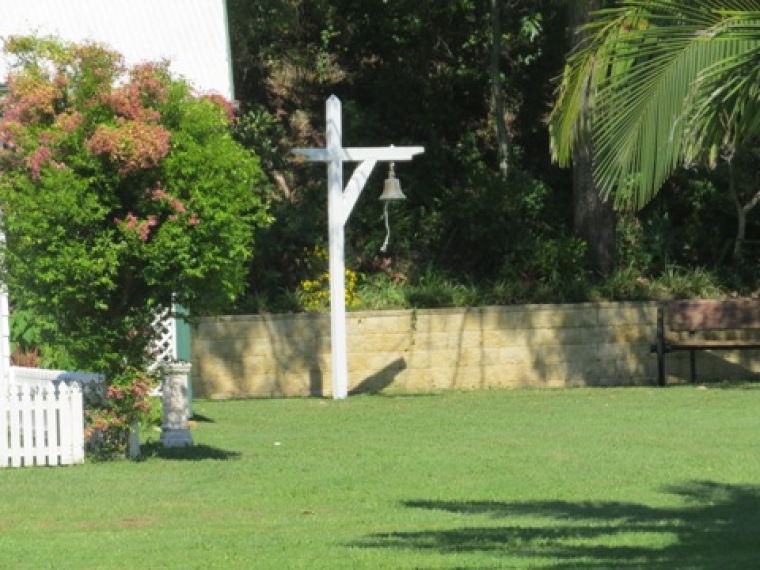
Some airlines are planning new levels of high-end travel such as Etihad and Emirates but it appears to be against the trend according to Grant Bradley who wrote the article.
You may not have been aware, that according to the article it is reportedly close to $25,000 a single long-haul journey for Etihad's three-room suite with a living room, bedroom, bathroom and shower complete with a butler. One might even be game enough to ask whether the Butler might be either male or female for such a price tag.
Grant Bradley wrote Lufthansa is following that American Airlines who followed Brazil's TAM Airlines in getting rid of its first-class seats in favour of upgraded business-class cabins.
So there's the trend.
What has brought such a re-direction where so many are well heeled and are easily able to afford this is a little surprising, yet airline executives may sense an economic change coming on the horizon.
Large airliner
There was a time
There was a time where churches served the wealthier members of society where these established families purchased pews which were assigned to those family members in worship services, special occasions, weddings and funerals.
In some churches, post Reformation Protestant, pews were installed at the expense of the congregants, and were their personal property; there was no general public seating in the church itself. (en.wikipedia.org)
In these churches, pew deeds recorded title to the pews, and were used to convey them. Pews were originally purchased from the church by their owners under this system, and the purchase price of the pews went to the costs of building the church.
When the pews were privately owned, their owners sometimes enclosed them in lockable pew box and the ownership of pews was sometimes controversial. Later to avoid this, sometimes churches were erected without any purchasing of pews as a municipal condition of building grants.
History repeats itself in church life and yes, there were commonly disputes over pew ownership. Certain areas of the church were considered to be more desirable than others, as they might offer a better view of services or, indeed, might make a certain family or person more prominent or visible to their neighbours during these services. During the late medieval and early modern period, attendance at church was legally compulsory (the life of Serfs on Estates), so the allocation of a church's pews offered a public visualisation of the social hierarchy within the whole parish.
In our own family ancestry in County Cavern, Northern Ireland there were several generations of Reverend Tronson's who were responsible for the spiritual welfare of the entire estate (with an Estate Chapel) which included the Serf's and their families. (www.bushorchestra.com)
At this time many pews had been handed down through families from one generation to the next. Alternatively, wealthier inhabitants often expected more prestigious seating in reward to contribution to the material upkeep of the church, such as the erection of galleries.
Older style chapel
Smaller Protestant congregations
As the 20th century came around and growing prosperity with suburban and regional Protestant churches, particularly in the Non-Conformist scene, what we find, which continues down through the years to today, is that some churches financially depend on maybe 3-4 well to do families.
What we see therefore is a pew purchasing situation as was common as described above for centuries, rather we see that the very survival of the congregation's church structure (building, worship, welfare, community) and the Minister's salary was diametrically governed by these family's financial influence.
I am aware today, of Ministers who have moved on well before they thought their ministrations to that faith community was anywhere near concluded, but they had fallen out of favour of these 'corner-stone' families.
Today churches and missions split over a host of issues, not least as to who controls the finances and where the money is spent. As Solomon said, nothing is new under the sun.
Dr Mark Tronson is a Baptist minister (retired) who served as the Australian cricket team chaplain for 17 years (2000 ret) and established Life After Cricket in 2001. He was recognised by the Olympic Ministry Medal in 2009 presented by Carl Lewis Olympian of the Century. He mentors young writers and has written 24 books, and enjoys writing. He is married to Delma, with four adult children and grand-children.
Mark Tronson's archive of articles can be viewed at www.pressserviceinternational.org/mark-tronson.html

